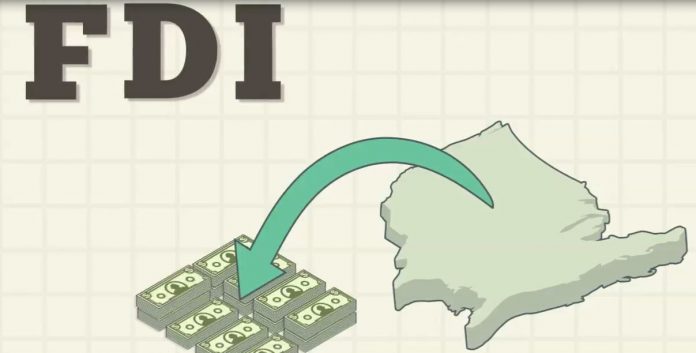
ISLAMABAD: To enhance foreign investment in export-oriented sectors, a draft investment document named “Trade-Related Investment Framework” has been shared by the Commerce Division with the Board of Investment (BoI) and all stakeholders.
The “Trade-Related Investment Framework” document outlines a detailed makeup to allure investment in export-oriented sectors and recommended measures to remove all impediments hindering investments, reports Dawn.
According to a senior official, the commerce division is awaiting feedback regarding this policy, but he said no response has been received from the BoI.
And this draft policy highlights the important link between trade and investment, recognizes the global trends in foreign direct investment (FDI) and scrutinizes the country’s investment over the years.
The initiation of this policy is coming at a juncture when cumulative foreign direct investment (FDI) inflows to the country touched $10 billion in previous five years.
From the FDI inflows of $10 billion in last five years, 81% have gone into non-manufacturing sectors like IT & telecom, transport and trade, financial business, oil & gas, construction and power sectors.
To enhance investments in exports, the draft policy recognized shifting of resources from labour-intensive sectors, value-added footwear and bags, apparel and textiles to resource-intensive sectors like high-technology steel-making, aluminium sheets and copper cathodes.
Moreover, the document indicates the requirement of investment in the agriculture sector mostly in value-addition of resources-intensive segments of agro-processing which include juices and syrups, confectionery, fish and edible oil.
The draft policy advised investments in import substitutions in the oil refinery and petrochemicals, data processing/ITC equipment, telecom, LED lights and solar panels.
Also, it recommended blending global value chains mainly in consumers electronics, automotive electronics, integrated circuits manufacturing, electrical equipment and chromium bromide batteries.
It said extraordinary incentives for sectors like energy, fertilizers, sugar and attractive returns in real estate and stock exchange as the major cause for subdued investment in the manufacturing sector.
The document mentioned that previous and existing policy channelized investments and FDI into non-manufacturing sectors.
It added even for manufacturing linked investments, leaning has been to capture domestic demands instead of formulating exports such as the automobile sector.
Similarly, the preferential market access contracted under the aegis of trade agreements hasn’t contributed towards raising exports to partner countries.
According to the draft document, a lack of symbiosis between investment, agriculture, industrial, trade and tariff policies had also hindered the flow of investment in Pakistan.
Moreover, the draft document points out that investment into export-oriented manufacturing in the preferential sectors primary hinges on the competitiveness of production and market access.






















